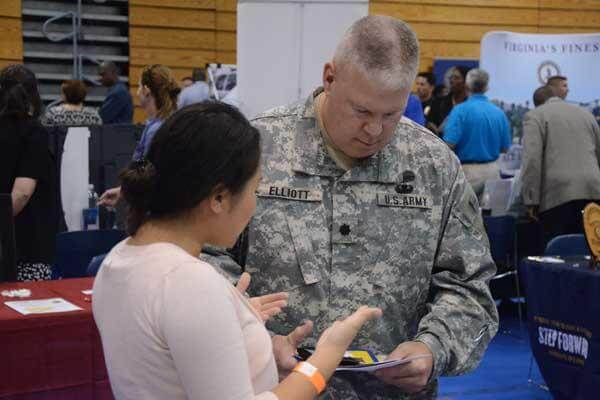As veterans leave their military careers and learn the nuances of the corporate hiring process, they often face challenges when communicating to corporate recruiters. At the same time, company recruiters strive to hire former military service members but find that getting past the military narrative and uncovering the opportunities a veteran offers can be overwhelming.
Evan Stratton, a Marine Sergeant who transitioned out of the military in 2011, knows the challenges first hand. "When you take off the uniform, there are few tools and resources to help you learn how to get the attention of recruiters and hiring managers." Evan, now an Associate at LIDA360, spent three years working as a corporate recruiter after leaving the service. "I've learned firsthand the systems and insights recruiters need to use to strategically attract, hire, and retain veteran talent."
In speaking with Evan, he offers tips to recruiters and hiring mangers seeking military veteran candidates:
Know the Numbers
Nearly 300,000 service members transition out of the military each year. There will be an estimated three million transitioned veterans in the workforce by 2020. Companies across the U.S. are taking note of this influx of workers and retooling their sourcing and on-boarding programs to take advantage of the opportunity.
In the military, there are over 7,000 different jobs available including IT, healthcare, construction/engineering, and human resources, and many of these jobs have relatable and transferrable skills for civilian work.
Learn the Lingo
The military culture is filled with acronyms and military jargon, which can make it hard to decipher a candidate's qualifications, particularly on a resume. Recruiters who learn basic military language such as different job labels, military occupational specialties, and acronyms by service branch, will gain tremendous insight into the military culture and processes. A well-prepared recruiter will be able to help the veteran job candidate translate their military experience, bringing their highest value forward in the interview.
Don't Oversell the Job
When interviewing a veteran job candidate, recruiters should remember that the candidate is also evaluating the company. Recruiters are often the first person a candidate speaks with at the company, and first impressions go two ways!
Typically, someone exiting their military career -- whether they served 4 or 40 years -- has not interviewed for a job in the traditional sense. When the candidate inquires about company culture, values, and mission, they are looking for a link to the service, honor, integrity, and commitment values that the military teaches and promotes. When the recruiter can speak to company goals, values, initiatives, and greater purpose, the veteran job candidate will take note and be more engaged.
Talk about the company culture
"Military candidates are rigid," is a common perception among recruiters. The veteran candidate might sit straight up in their seat, present an overly-polished appearance, and reply with "Yes, sir!" and "No, ma'am!" This is their military conditioning, and it's often a hard habit to break.
If the company culture is casual and informal, recruiters can put veteran job candidates at ease by setting the tone and explaining protocol. Simply saying, "At our company we address each other by first names. Feel free to do that in your conversations here. Call me Bob…" The veteran candidate will appreciate this insight!
Understand the value of post-service education
"When I transitioned out of the Marines, there weren't a lot of companies recruiting for Amphibious Assault Vehicle Crewman in the civilian workforce. I opted for school instead," notes Evan. The military offers one of the best scholarship programs available, in the form of the GI Bill. Millions of veterans are taking advantage of these post service education benefits to better their career long term, and invest in themselves professionally.
A veteran job candidate who shows school after military service brings life experience gained in the military as well as academic readiness.
Veterans are in increasing demand at companies today. By understanding more about the military culture, processes, and the veteran experience, recruiters can improve the effectiveness of their efforts to source and hire veteran talent.




